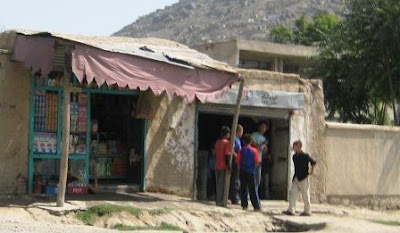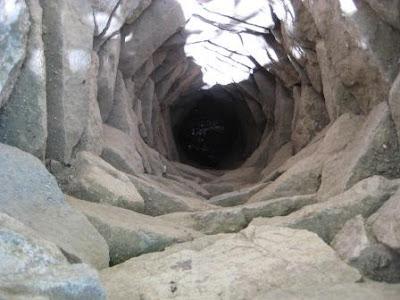
My final days in Kabul were busy between running errands and finishing up at Kabul University. Here are a few more shots of the markets around town - vests, above, for the men and a line of shops selling burkas.


The bazaars on either side of the Kabul river are noisy and bustling from dawn to dusk, so the boy taking a snooze in the mid-morning caught my eye.
 Kabul has over 4 million people but no traffic lights or painted lanes, and car steering wheels can be on both sides. Kabuli traffic cops enter the fray wielding little red stop signals in their hands, but it isn't uncommon to find them taking it easy under the umbrella over the roundabouts.
Kabul has over 4 million people but no traffic lights or painted lanes, and car steering wheels can be on both sides. Kabuli traffic cops enter the fray wielding little red stop signals in their hands, but it isn't uncommon to find them taking it easy under the umbrella over the roundabouts. Buying some tea was a must before leaving - after drinking so much I couldn't risk the effects of immediate withdrawal. Merchants have many varieties of black and green tea, imported from Africa, China and everywhere in between.
Buying some tea was a must before leaving - after drinking so much I couldn't risk the effects of immediate withdrawal. Merchants have many varieties of black and green tea, imported from Africa, China and everywhere in between.

Afghans are ethnically diverse, from from fair skin and eyes to dark hair and black eyes, and I was regularly mistaken for an Afghan and stopped for directions or to chat. But in the bazaar, when I couldn't respond in Pashto or Dari, prices skyrocketed. To negotiate price and find my way to different vendors in the bazaars, I counted on Wali (above) a professor in the Faculty of Agriculture, who was an excellent guide and good friend.
As much as possible we tried to source material for the Faculty of Agriculture at the local markets, from wood for lab benches to computer hardware. For laboratory coats, we bought 40 meters of fabric and had the coats made by a local tailor.
 Dusk on either side of the Kabul river.
Dusk on either side of the Kabul river.  Over the final weeks of my stay, I gave lectures to staff and students in the Faculty of Agriculture on topics ranging from using digital library resources to proposal writing, and over the final days focused on integrating some laboratory exercises into coursework. To examine water quality we took a sample from the Kabul river.
Over the final weeks of my stay, I gave lectures to staff and students in the Faculty of Agriculture on topics ranging from using digital library resources to proposal writing, and over the final days focused on integrating some laboratory exercises into coursework. To examine water quality we took a sample from the Kabul river.
 There is a large area for experiments and demonstrations around the Faculty of Agriculture, but for the most part it is not in use. As part of labs, students and staff took water, soil and plant samples which we then tested in the laboratory.
There is a large area for experiments and demonstrations around the Faculty of Agriculture, but for the most part it is not in use. As part of labs, students and staff took water, soil and plant samples which we then tested in the laboratory. Courses lasted right up until my last day and we had a final send-off of tea, cookies, fresh melon and some very thoughtful gifts from staff and students (including more tea). The time flew past and I am extremely grateful to my Afghan hosts who made the trip so memorable.
Courses lasted right up until my last day and we had a final send-off of tea, cookies, fresh melon and some very thoughtful gifts from staff and students (including more tea). The time flew past and I am extremely grateful to my Afghan hosts who made the trip so memorable.Eighty percent of Afghanistan's economy depends on agriculture, and universities should be playing a key role in developing the country. Right now foreign governments, mostly through contracts with private development groups, are at the front of efforts to modernize agriculture. But for all the well-publicized aid money that flows into the country, a huge amount goes to overhead, salaries for foreign consultants and security (which continues to deteriorate), which mean much of this money does not reach Afghanistan. Education and training are needed to generate Afghan professionals to take the lead in development. This effort will take decades of dedication from donor countries, but will well worth it for the development of the country.




























